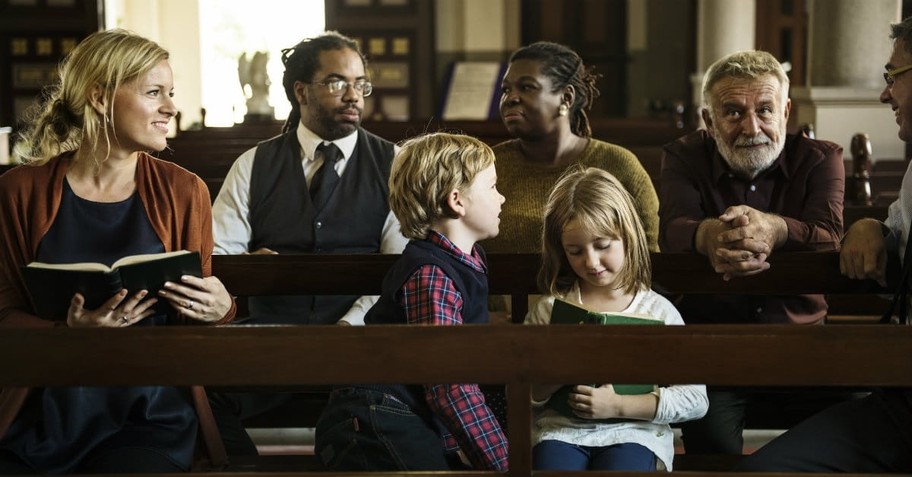Though we are connected to people in some ways more than ever in the Digital Age, the fact remains more people are lonelier than ever.
In an article entitled "The Curse of Modern Loneliness" in the National Review, Clay Routledge says,
The paradox of modern social life is that the more technology affords people ways to stay connected to loved ones and make new connections with others all over the globe, the more disconnected and lonely we may be becoming. Americans today, compared with those of decades past, are far less likely to know by name and interact with their neighbors, carpool or take public transportation to work, participate in civic and religious organizations, and feel that they have close friends they can confide in.
What a sad commentary on our generation. This article goes on to report the harmful effects of loneliness on people from various studies that have been done, including depression, feelings of worthlessness, poor health and premature death.
Photo Courtesy: Thinkstock

The Effect of Loneliness
Regarding the health effect of loneliness, I was reminded of a story Malcolm Gladwell told in his book The Outliers. Across the state of Pennsylvania from where I live lies the community of Roseto. A local physician there one day happened to mention to a researcher from the University of Oklahoma that no one in Roseto seemed to suffer from heart disease. Intrigued, the researcher, Dr. Stewart Wolf, conducted studies and found this was indeed the case. Men under the age of 55 did not show any signs of heart disease or did not die from heart attacks. For men over 65, the death rate from heart disease in Roseto was about half of what was found in the rest of the country.
So Dr. Wolf investigated the reason for this phenomenon. Being primarily an Italian American town, he first studied the citizen of Roseto's diet, but this did not explain it for as good Italians they were eating plenty of pizza and pasta while drinking wine. Next, he considered genetics but found people from the same family lines living in other places did not have the "Roseto effect" - they had heart disease rates like other Americans. He also found that it was not that they had an easy lifestyle – the people there were primarily hard-working, blue-collared types. He ruled out all factors except the one that explained it. The reason? The community itself.
Photo Courtesy: Matthew Dix/Unsplash

The Sense of Community
Wolf found that there were unusually healthy relationships in Roseto. Walking through the community, he saw people visiting with each other, stopping to chat with each other on the street, and cooking for each other in their backyards. Families often had aged grandparents living under the same roof. Churches and civic activities were well attended. The sense of community was strong, and it impacted in a positive way their health.
Physical, mental, and spiritual health are all aided when people do not live in isolation. As I reflect on these things with the Scriptures in mind, I'd like to suggest five brief ways the church should work to minister and combat loneliness.

1. Renew your commitment to invest in the community that is your local church.
So much loneliness is self-afflicted. For the faithful local church of Jesus Christ is the God-ordained, new heavens and new earth community where people are to find the gospel hope and life they so desperately need. Our dedication to the church is prone to lagging. Renew your commitment to attend all worship services and to be vitally connected to your local church through investing in Bible study, prayer, and service. Just last night I heard this wonderful message by Pastor H.P. McCracken on the importance of worship from Malachi 1 and had my own commitment renewed as a result.
Photo Courtesy: Thinkstock

2. Sow bountifully seeds of friendship.
In counseling children who feel isolated, people who have moved into a new community, or adults having trouble making connections in the church, I point them to the simple, Biblical principle that so often we reap what we sow. This digital age can encourage a passivity in relationships as we watch people at a distance and wait for people to engage us. Consequently, friendships flounder. Instead, actively sowing seeds that build relationships through such simple acts as approaching people by asking questions regarding their wellbeing, inviting for a meal, or sending a note (yes, a text is okay but handwritten notes carry far more weight) create bonds that overcome loneliness.

3. Battle hard any digital addiction in your life, family, and church.
God's people must be free from allowing screens and social media control us, and consequently putting cyber-distance between us and others. David Murray at HeadHeartHand has offered the church a great service in this area. Read his post "Digitial Detox" and be sure to note all the links to other articles at the bottom. Any idea you need for help in this area can be found there.

4. Invite people to church.
After more than twenty-five years of pastoral ministry, I'm still amazed at how reluctant many believers are to simply invite their friends and neighbors to church, be it worship, Bible study, or a fellowship activity. Often we let the fear of people declining, the worry about social protocol, or even unbelief in God's power to convert certain people halt us. Yet everyone around you needs Christ and fellowship with his people. Our duty is not only to overcome our own loneliness, but help others to do the same. Invite them!

5. Visit the fatherless and widow.
The wisdom of James is so practical. "Religion that is pure and undefiled before God the Father is this: to visit orphans and widows in their affliction, and to keep oneself unstained from the world" (James 1:27). Those in this world who are most lonely need the church seeking them out, sitting with them, and listening to them.
Practically speaking, Christians conquer the darkness of loneliness in this world with the light of their gospel presence.
Barry York Sinner by Nature - Saved by Grace. Husband of Miriam - Grateful for Privilege. Father of Six - Blessed by God. Professor at RPTS - Serve with Thankfulness.
This article originally appeared on GentleReformation.com. Used with permission.
Photo Courtesy: Thinkstock
Originally published June 22, 2018.







